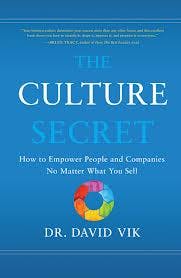By Dr. David Vik
I don’t know about you, but I love HR.
The department does so much for the company and its employees, and a lot of it, I feel, goes unrecognized. I don’t know how those staff members keep all the plates spinning as they constantly help folks to be their best.
HR personnel secure benefit packages for us and our families and handle our 401(k)s and retirement plans. They help guarantee that we’ll be safe and taken care of. Many times they oversee training, employee development, and work activities, and not only during business hours.
As far as I’m concerned, they should be the most revered employees of the company.
Stressed out by teaching – and HR
When I directed my clinics from 1982 to 2004, I took care of all kinds of people, but at least half of our patients worked, in some capacity, in a technology company in the Silicon Valley. I would always study patient demographics — where they came from, age, profession, and so on.
After a couple of years, I had a fair amount of data about the percentages of patients in various occupations. The stats didn’t change much over the years. But the demographics that didn’t seem to make sense to me were the number of teachers and HR employees.
My clinic saw some patients with trauma from accidents, but for the most part, they came in for stress-related conditions — mental, postural, or repetitive in nature. The stress often manifested itself in migraines and other headaches, as well as neck, low back, and shoulder problems. Those teachers and HR folks were some of the nicest people I have ever met, and I’d never thought of their professions as stressful, but something was certainly taking a toll!
Why were they so stressed out that they had physical symptoms? Was it because high demands were placed upon them? Were they overworked and underpaid?
Teachers, I could figure out. I have kids, and I go bonkers once in a while. I can’t imagine dealing with 30 of them together all day long. With the responsibility and challenge of inspiring and motivating students all with different levels of needs, it’s understandable that their work can be stressful. (Teachers, I love you — and a big thank you for all that you do!)
An undeserved bad rap
So that left the HR employees, and I started asking them about their job. In a nutshell, this is what they told me: the majority of their day was spent hearing “he said/she said” disagreements that had escalated out of control. They were undergoing a lot of tension and stress.
How can that be? These men and women were working with adults, helping them out, and they ended up being referees in he said/she said arguments?
My HR patients also said they had an undeserved bad rap. I don’t doubt that.
Consider this scenario: a co-worker or your manager tells you to go to HR. What would your reaction be? You’d probably be sure your job was about to end. The initials “HR” evoke certain unpleasant responses from everyone who hears them. It’s like being told in grammar school, “You need to go to the Principal’s office.”
Why does everyone panic when faced with going to HR? By definition, that office should be seen as a place to get support or aid. Human Resources: Human— consisting of people; Resources — a source of supply, support, or aid. An employee who is asked to go to HR should not be scared out of his or her wits.
The use of HR as a department sprang up in the 1960s. Originally termed “human resource development,” it was designed to maximize human potential. Yet today, even though most people within HR work very hard at the original idea, they still get an undeserved bad rap.
Changing the negative image
What is your HR department doing to change its negative connotation?
It’s tough for HR to shed its connotations, though aligning itself with the goals of supplying support and maximizing human potential would be a good place to expand. So how can you change the way your employees view HR?
Since the very name HR gets in the way of accurate perceptions, why not begin by changing the name? Even though it may sound silly, a name change can do a great deal for people and companies alike.
To me, HR should be viewed more like what it is and can be: a combination of a loving, caring, empowering department that helps take employees to the Next Level, and a concierge. Changing the title to Human Empowerment — HE — gives the department a fresh start.
Getting HR front and center
The new name will help employees focus their thoughts, decisions, and actions on empowerment, just as having a clear vision and purpose aligns the company and moves everyone in the same direction.
Much of what the HR department does for employees lies behind the scenes and goes unrecognized or unacknowledged. That’s the reason why at Zappos, we started to have the different people from HR sit in with other teams and departments. This created close relationships and increased communication companywide.
Getting them front and center did wonders for everyone, especially the HR department!
?????Excerpted from The Culture Secret: How to Empower People and Companies No Matter What You Sell. By Dr. David Vik. Published by Greenleaf Book Group Press, Austin, TX. Copyright © 2013 David Vik. All rights reserved.
